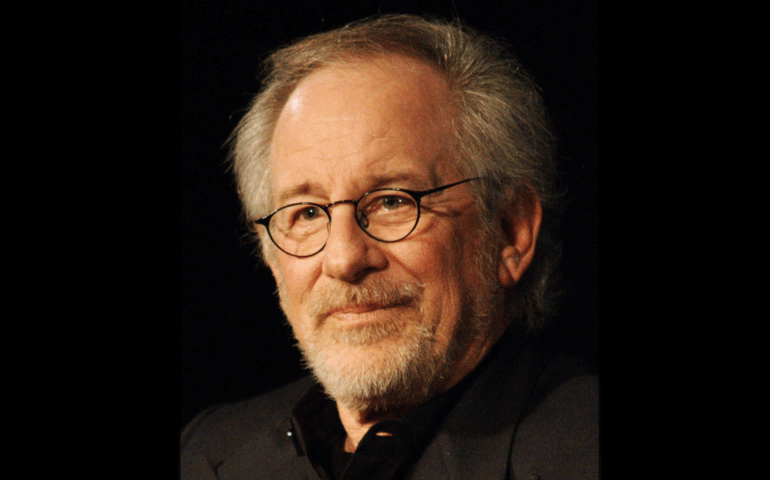
The Fabelmans Expresses The Precarious Way Jews Exist In A Gentile World
The Fabelmans, Steven Spielberg’s autobiographical movie, did not win a single Oscar last night, which is a shame. Though the actors cast to play his parents are not Jewish (something I would have preferred) and the fact that the Spielbergs grew up Orthodox wasn’t mentioned (which would have been a neat chance to normalize Orthodoxy), this was a fabulous film and one of the most Jewish movies to hit the big screen in a long time.
What struck a chord most for me in this film was how effectively Spielberg articulated the precarious way Jews exist in a gentile world. First a brief overview. The Fabelmans is the backstory for how Steven Spielberg got into filmmaking and the way he negotiated being a Jewish kid in a mostly non-Jewish school and town, during his adolescent years. There was also some family drama.
Now for some light spoiler alerts:
Being one of the only Jewish kids in school is never easy. I know this from personal experience, as the only girl in my public school grade for most of the time from first through eighth grade. Classmates told me that Jewish people howl at the moon and pray to the devil. I was asked why the Jews had to kill Jesus, and I was called a “Jewish jerk.” A classmate also made guttural noises and told me that he was speaking my language.
In The Fabelmans, Sammy, who is meant to be young Steven Spielberg, is called a Christ-killer and is physically assaulted numerous times. First some compassionate non-Jewish female classmates stick up for Sammy. Then he spends a lot of his time running and hiding from the antisemitic bullies. By the end of the movie, Sammy is able to win over one of his enemies by using his filmmaking skills in a complimentary way. One of the enemies then becomes Sammy’s defender, due to his talent.
And all the while, when Sammy is either a punching bag and/or running or hiding, he otherwise lives in a relatively stable home with affluence. This dichotomy, of many (not all Jews) of having a basic financial stability and basic family stability, while living in a precarious dynamic among gentiles, is why Jewish persecution is so misunderstood.
For many marginalized communities, there is a lack of economic and/or family stability. When Jews are not discriminated, as a whole, we can often rise up the ranks in society. When Jews are not murdered, as a whole, our families are often intact. And yet, there is a knowledge in many and a fear in some, that our safety only persists as long as our gentile neighbors deem it to continue.
If this sounds paranoid, as only .2% of the world’s population and the descendent of a people that has been expelled or exterminated in nearly every non-Jewish society we’ve ever lived in, being aware that nearly all societies eventually tire of their Jews is not hysterical, it’s historical. Pretending that this is not the case is either ignorant or willfully ignorant.
The one time and place that Jews need not rely on gentile hosts to allow them to exist is in Israel. In Israel, Jews are finally in a position to have our own land and to defend our own space. But the Jew as the powerful, physically strong one is very unknown to the world. It makes many people uncomfortable.
It was painful to watch Sammy Fabelman be targeted for being a Jew. But I have to say, that when Jewish actor Gabriel LaBelle, who played Sammy responds to the antisemite’s suggestion that he apologize for the death of Jesus and Sammy says, “I see no need to since I didn’t live in Rome 2,000 years ago,” I welled up with pride. Those words were delivered by a young man who bears the weight of his ancestors on his shoulders and who is connected to them through his soul.
The Fabelmans effectively expressed the precarious nature in which a Jew exists in gentile society. And it also reminded me that I don’t want to live in a precarious way for the rest of my life.
If you found this content meaningful and want to help further our mission through our Keter, Makom, and Tikun branches, please consider becoming a Change Maker today.








7 comments
Sort by
So when are you moving to israel? I may ask because i did
Our eldest already did. My second is planning to next year and beH we will follow.
If you don’t want to live in a “precarious way”, make aliyah!
That’s exactly what I was getting at and that’s the plan.
Heard it many times starting in elementary school – You killed Christ, You’re going to hell, Jews don’t believe in heaven, and Jesus was a Jew. As I got older, the chorus included, “Jesus will judge all you Jews on the day of rapture…..etc, etc., (although I was never sure which day of the week that would fall on). It was not a terrible experience raised in small, white, Christain, rural community, but it had its moments.
Painful as it is, antisemitism is Hashem’s wake-up call. If we Jews dont make kiddush, the goyim make havdala. Fitting in seamlessly isnt the goal.
Sadly yes aliyah is the answer but religious Jews are beginning to feel scorned and marginalised there as well
It’s crazy what’s going on there now